Welcome:
Greetings and welcome to American Bardic Poet.
“Starlord”
This week in honor of my birth month, I share sections of a poem that has grown more precious to me with each passing year. I remember listening to Dad recite this poem when I was a child - standing out on the hillside in rural Iowa watching the sunset together. I loved the sound of his voice, the song he brought into the world. I loved the rhythm inside the lines of poetry. I used to dance around as he spoke.
Only now that I am in Middle age and the poet is in his Elder age…only now do the words, and the feelings behind those words, strike so profoundly at my heart.
Good journey,
(The poet’s daughter.)
Starlord
must we hasten
old age with sorrow
will it not come
of its own tomorrow
turning to fruit
our most youthful flower
releasing to seed
our most sovereign power
dissolving us again
like water into mist
as eternity’s gateway veil
relentlessly lifts
to reveal heaven’s fields
sown with an earthly bliss
which waits to be harvested
by a heart that captures
what these eyes will always miss
You may have questions regarding punctuation. I also had these questions.
When I was still living near the poet in Iowa in my early twenties, I sat at my computer as he paced around the room. I listened as he pulled lines from his mind. I typed as fast as my fingers would go. Years later, Dad came to visit me at my home in Atlanta several times and stayed for a few weeks each time. It was during these Atlanta visits when I pulled out the poems I’d typed a decade earlier, and we sat together at the big oak table with the wind blowing outside to begin editing.
Being (by this time) in my early thirties, and having heard the poems since I was a child, I felt like I understood the pauses and intentions behind the lines. At least more than any other person, except the poet. And at least enough to edit the poems. But as we descended together, father and daughter, into the muddy nitty gritty of each line break, each period, each comma, and especially into the raging waters of the poet’s self-imposed commitment to the use of a third person “I” that should not be capitalized in order to side-step the ego and therefore be written instead as “i”…well…both of us tried our best.
That’s really all I’ve got to defend those early editing decisions.
We both tried our best.
The main question we came to ask was: do we edit for the written word or do we edit to try and replicate the spoken word experience?
There’s no substitute for standing under trees as dusk gathers, listening as the poet weaves a poem that’s unique to you. Yes, unique to you. And also unique to that particular moment in time. He has hours of rhyming lines in his head and prefers to compose the poems for individual people on the spot.
How do we translate that experience of standing in a circle listening, gathered in each other’s energy, to the written page? How do we offer a selection of lines to people in general when the original concept of Dad’s poetry is based on transmitting a message to an individual person based on a specific set of needs or requests…often interpreted by visions and in the energy of the living moment?
What are your ideas for this? Please share with me in the comments.
Today’s poem is one answer to that question. These few lines were chosen by the poet from the collection in his mind…thousands of lines. We went back and forth, digressed into conversations about transmutation and the great monarch migration, drank loads of coffee, and finally agreed on having no punctuation at all. Dad chose the title, “Starlord” and I typed the word out and proclaimed the poem finished. We got it down on paper and we moved forward to the next group of poems, each one an island in the rough sea of my father’s mind.
At that time, we were so exhausted and emotional and filled with poetry that we just had to get the words down on paper and then move forward.
Onward, toward the light. ✨
These are pages from the book, I Believe in Seeds: Affirmations for Rewilding, made possible by a grant from the BeWildReWild Fund at Iowa Natural Heritage Foundation. This book combines my watercolor paintings with Dad’s poems, and gave me a chance to try something different with punctuation. Also, it was such a beautiful moment when Dad saw my paintings and realized his poems were part of his daughter’s artwork.
I’m grateful.
I’ll write more next week. Hope to see you again then. Please consider sharing this post with someone you think may be interested in Dad’s poetry.
🙏🏼 Thank you for gathering here. May it be a blessing. 🙏🏼
About the Poet
Joseph S. Plum is a poet in the bardic tradition. He lives off-grid in rural Iowa and composes his unique chant-like oral poetry for fascinated audiences around the world. Joe has over 16 hours of oral poetry memorized in his head. He pulls from this collection of rhyming lines to compose poems according to the energy of the audience listening. Joe does all of this without writing the poems down on paper or holding any notes.
Joe’s daughter, Emily Lupita, typed up his poems over the years and launched Dreaming Deer Press to publish his work. He now has nine poetry books for sale on Amazon that can be purchased on Joe’s website - here.
Copyright / Consent / Contact
Joe has not consented to any other form of online / social media beyond this Substack newsletter and his one-page website. He does not have Facebook or Instagram or TickTock at this time. Please feel free to share posts from this Substack newsletter on any social media platform. Please share far and wide.
Sections of this newsletter and his website may be quoted / referenced without his consent as long as it is published with proper credit and a link back to the original piece. To obtain consent to publish his work or for an interview, please contact his daughter, Emily Lupita.
All poetry copyright Joseph S. Plum 2023. All writing copyright Emily Lupita 2023. Gratitude.
🌳


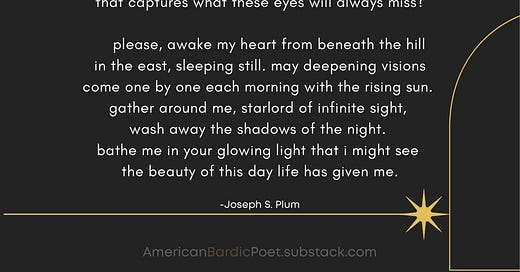


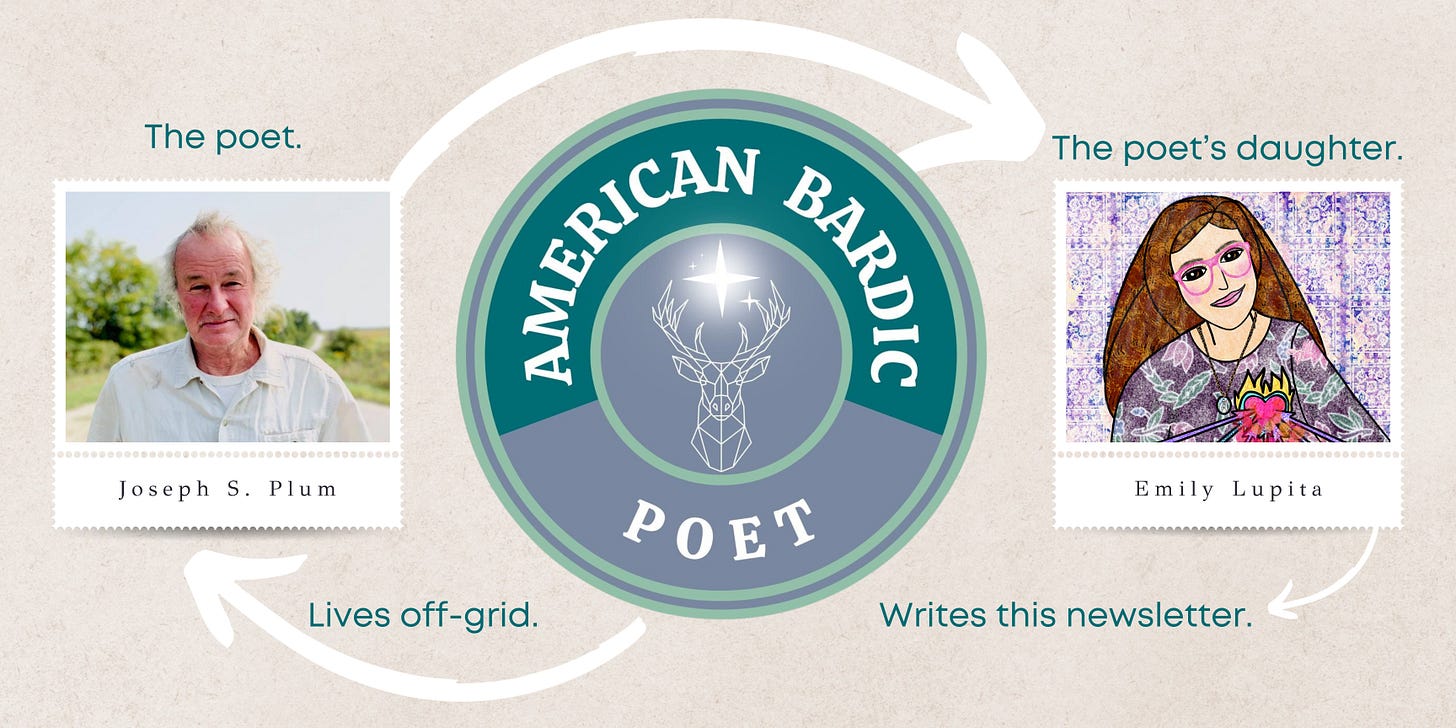

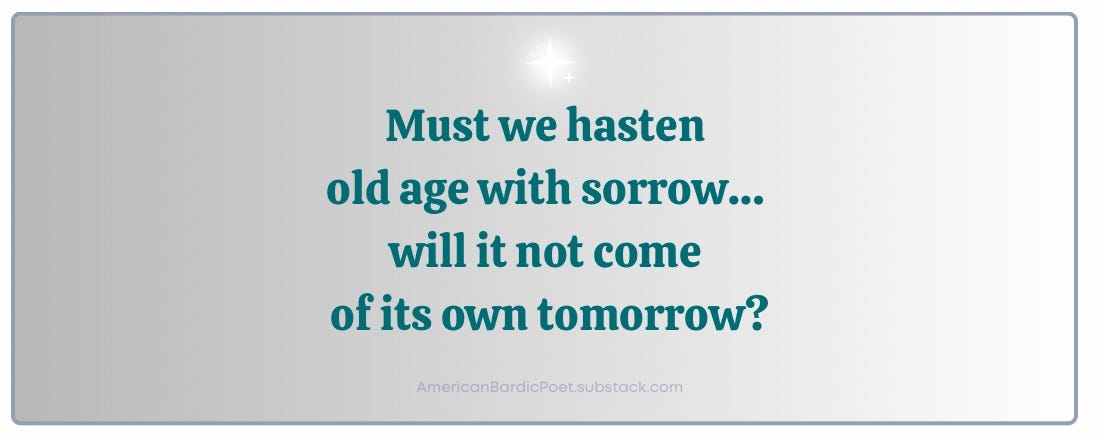


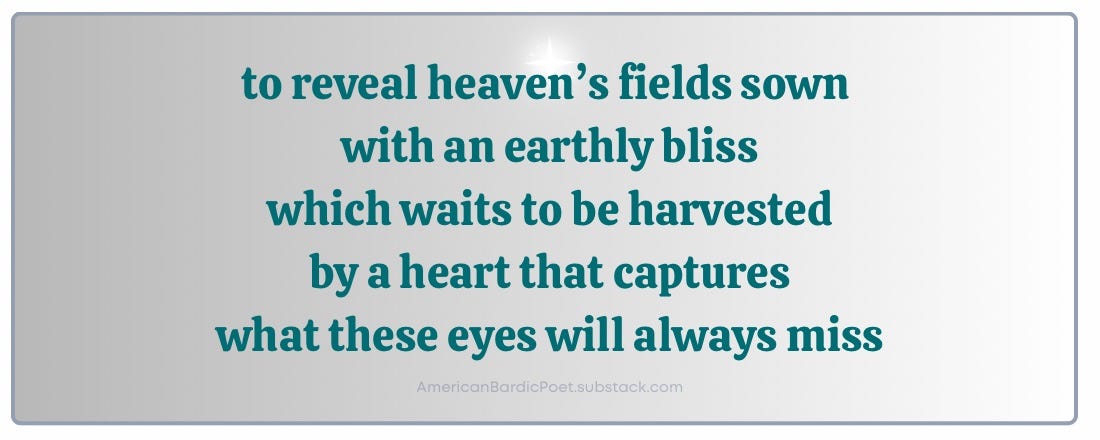

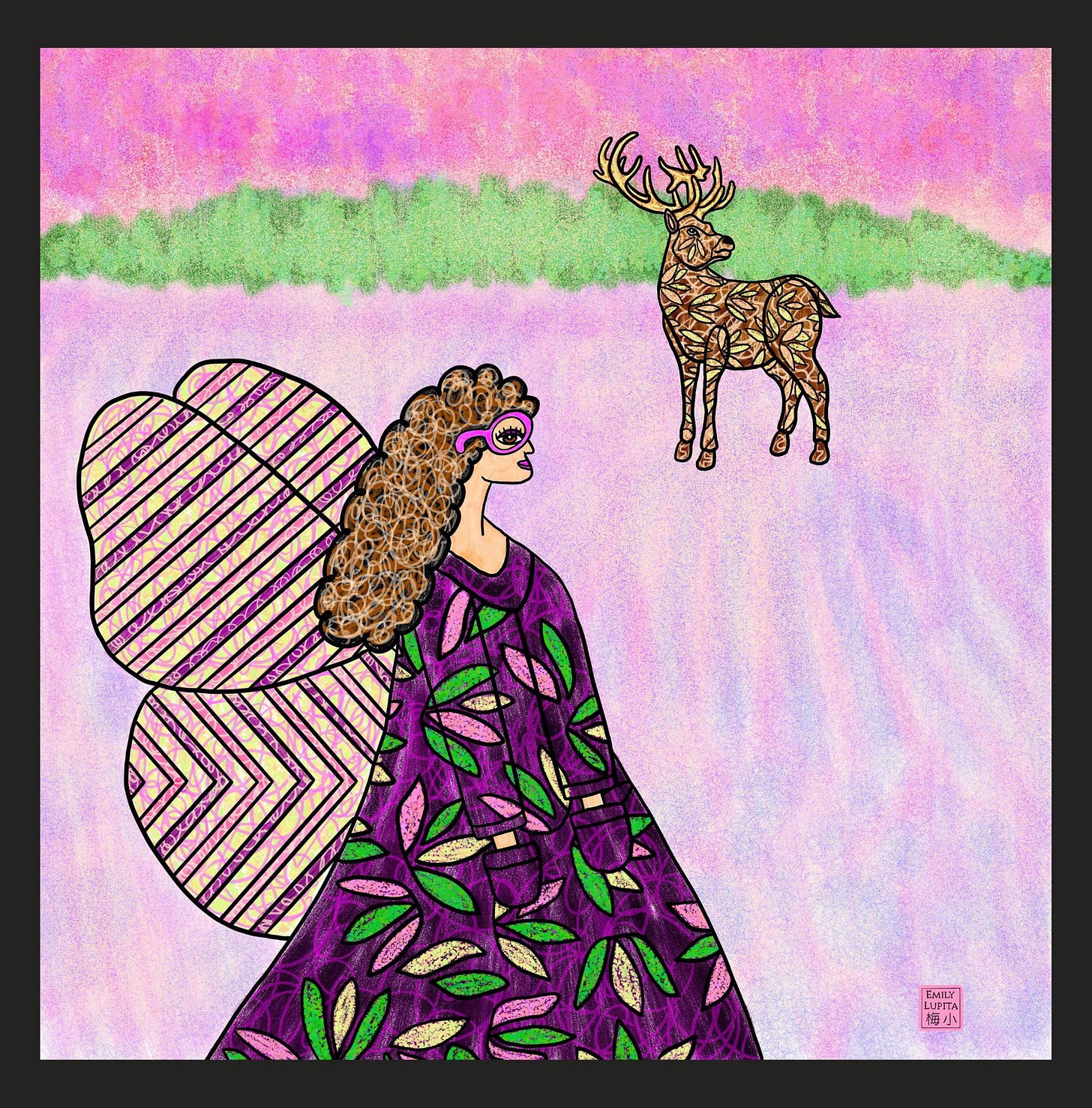
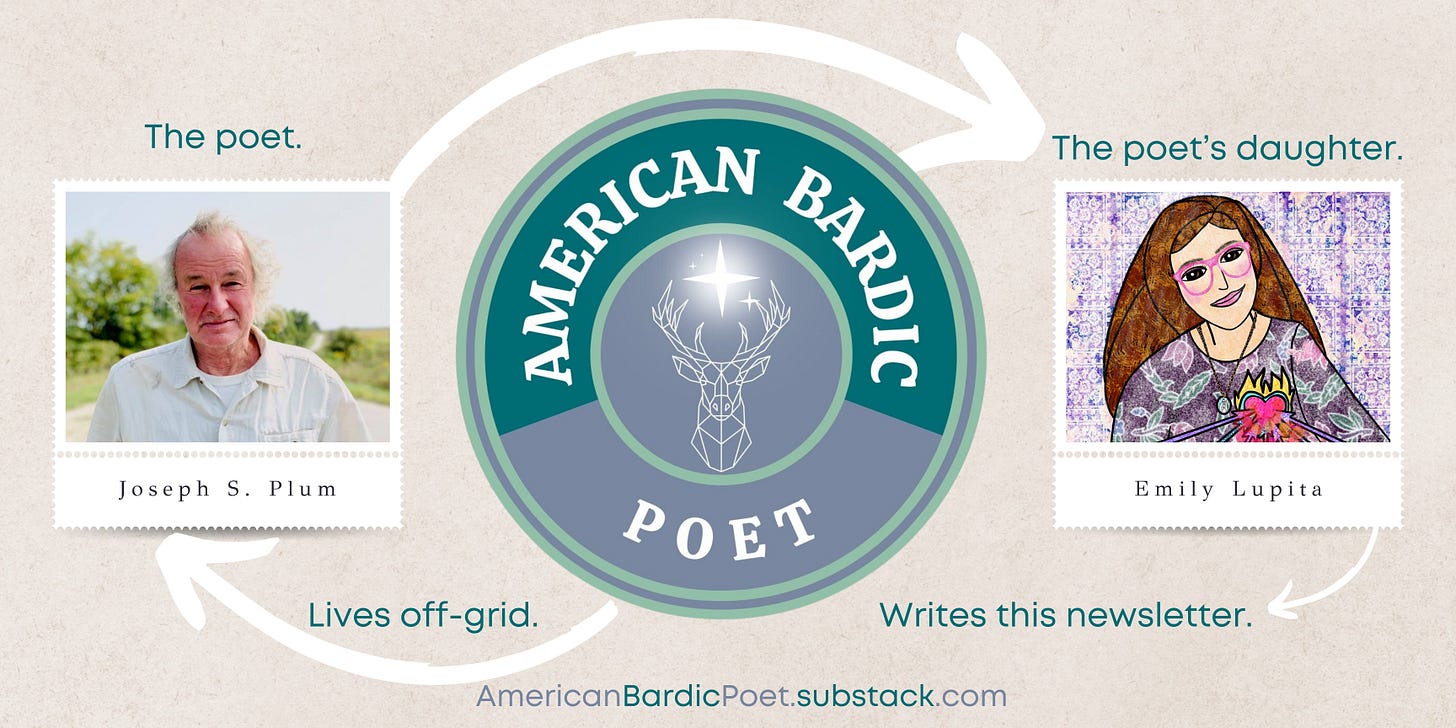


Beautiful!